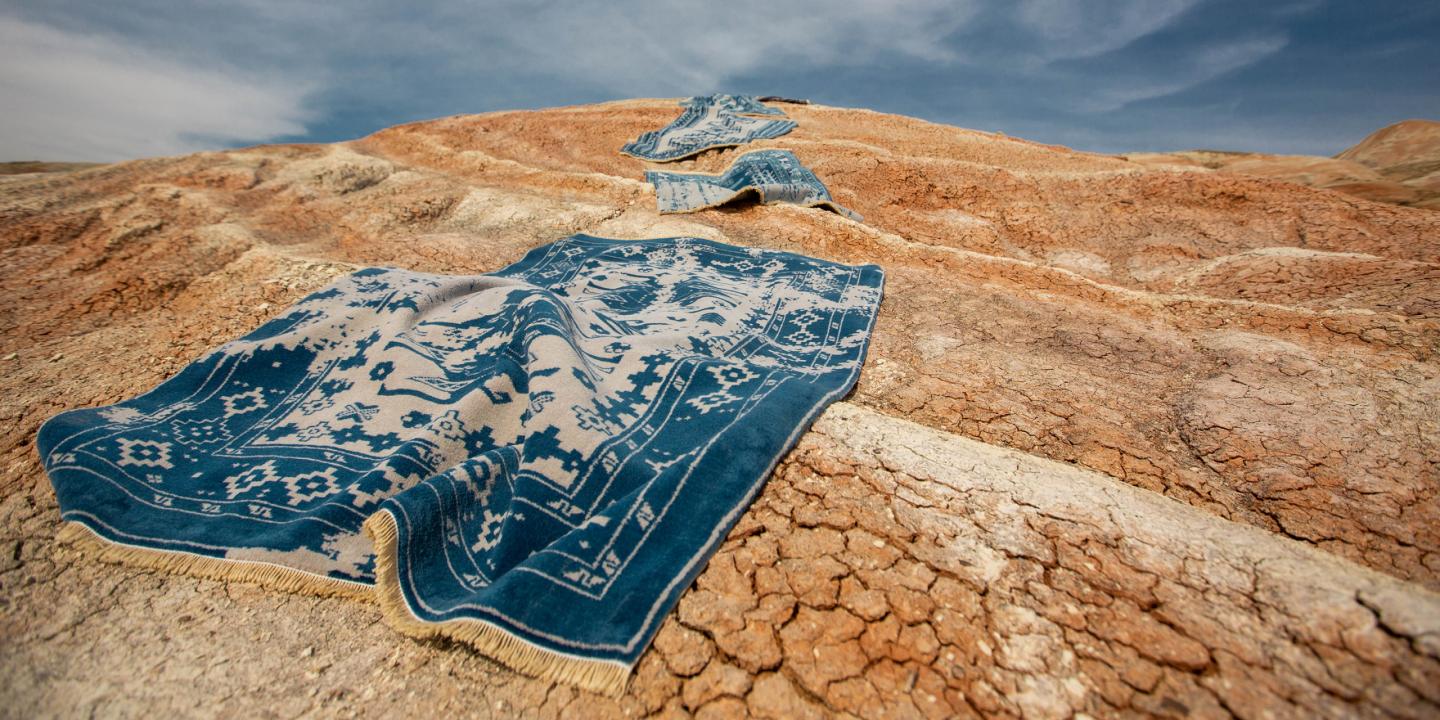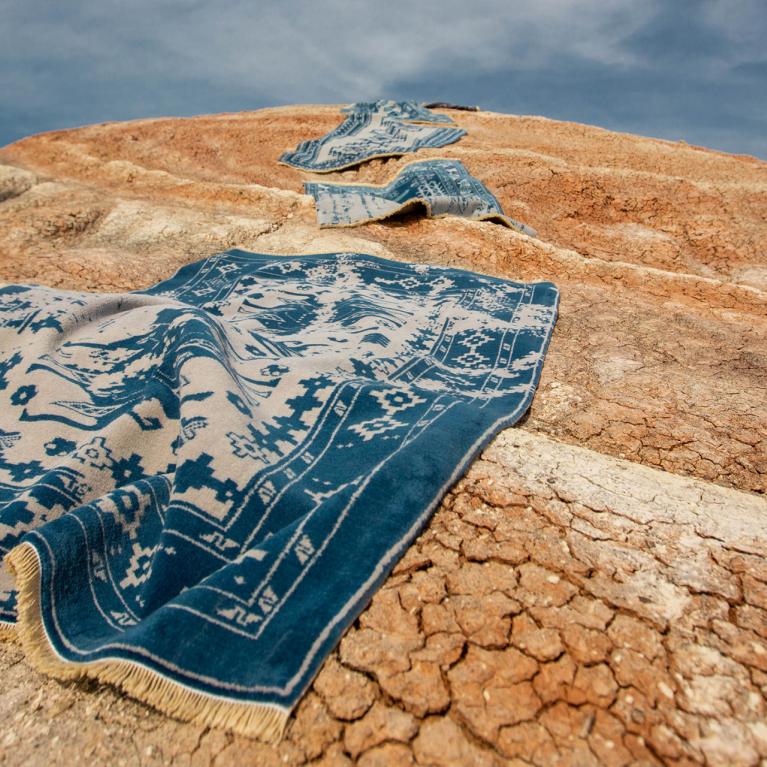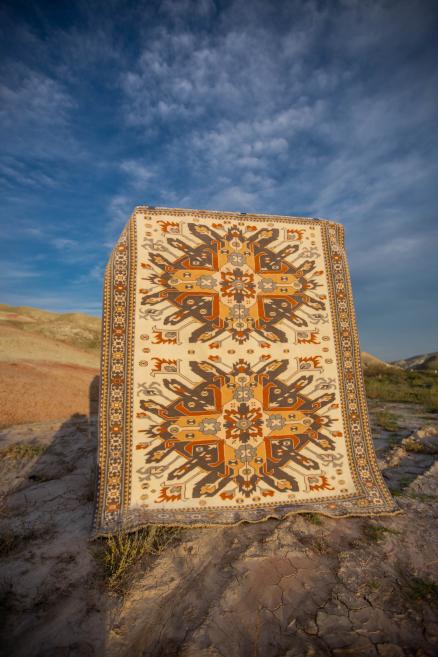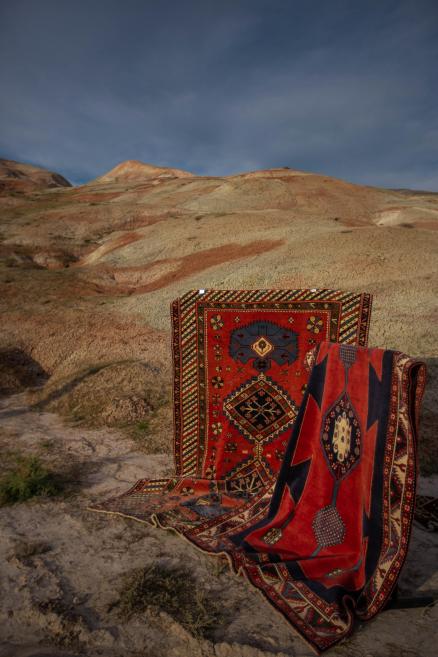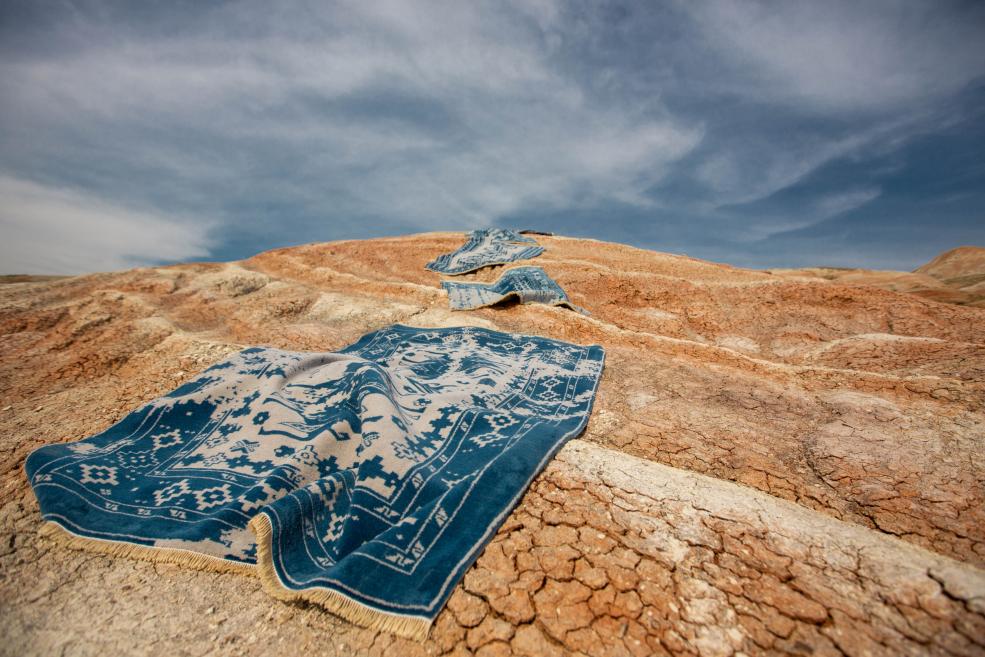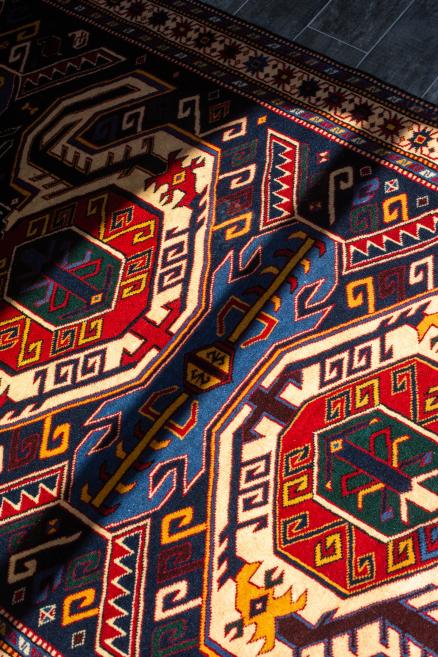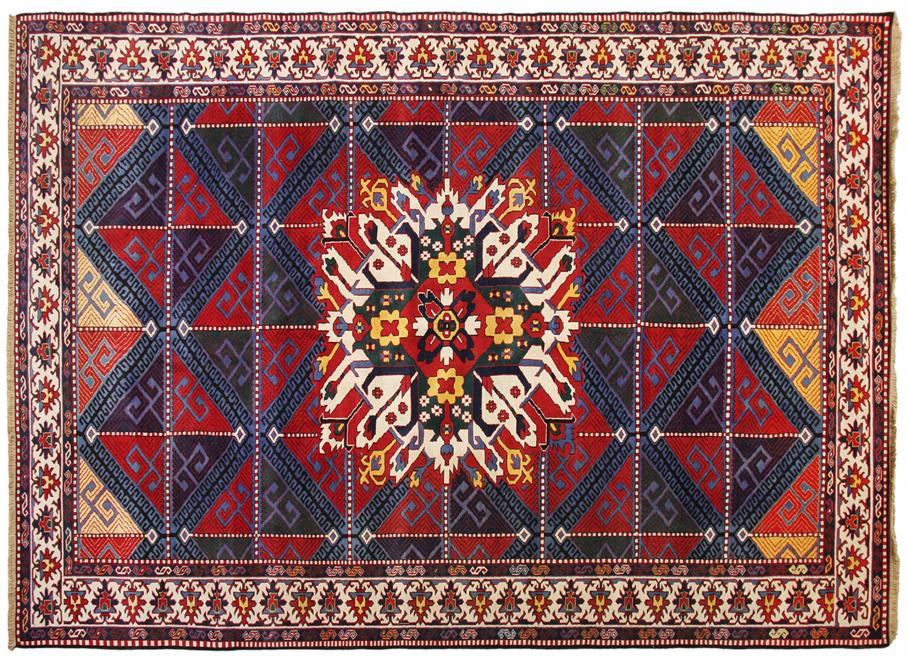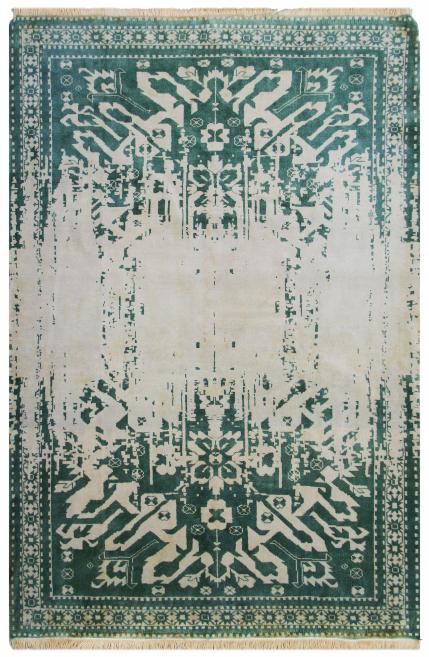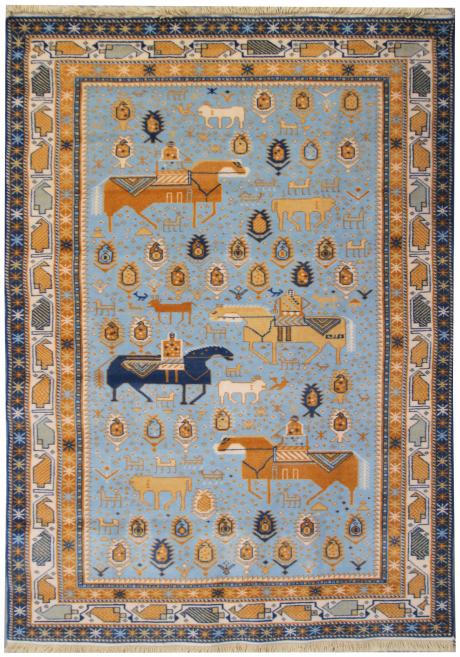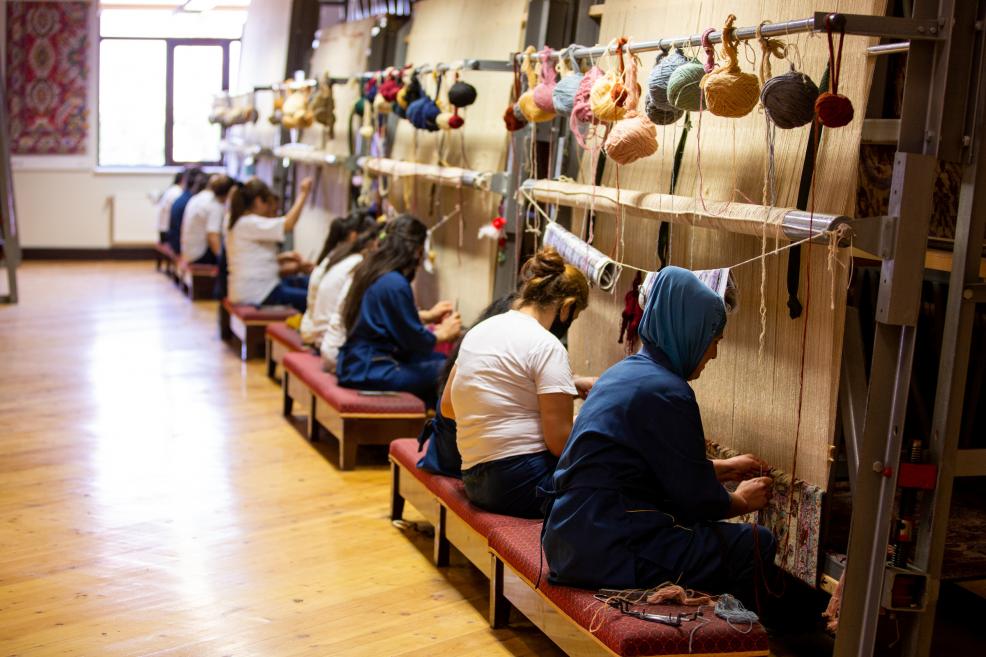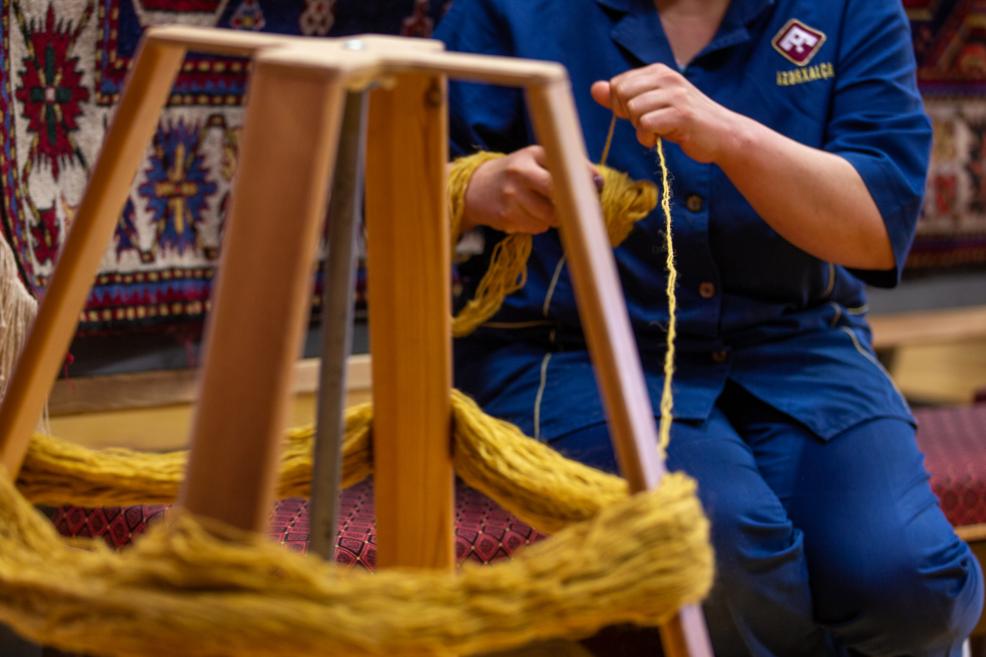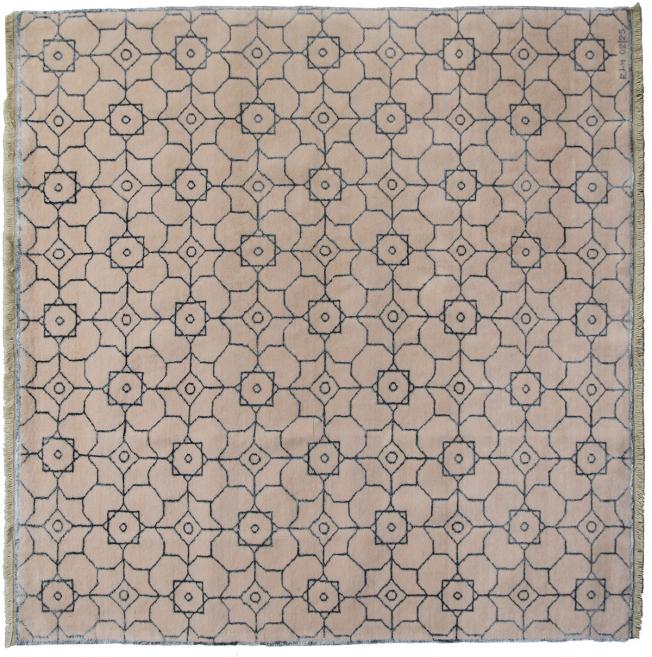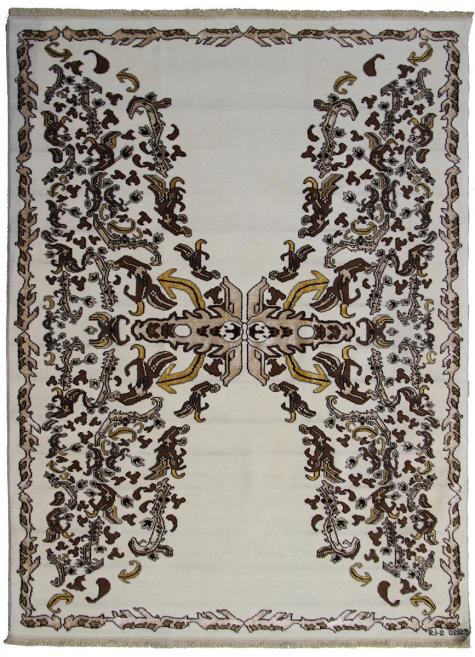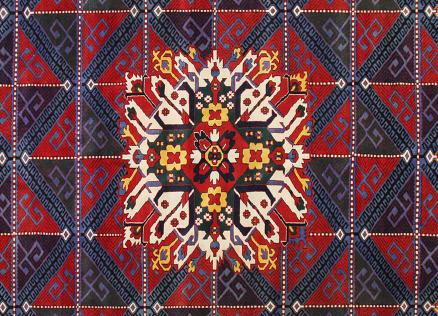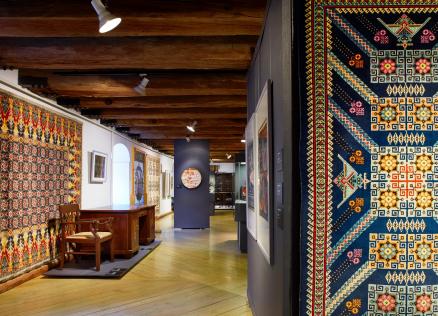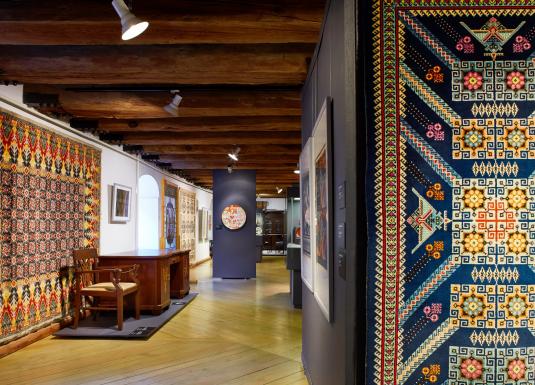The Genetic Code of Memory. Azerbaijani Carpets
To mark the 30th anniversary of the establishment of the diplomatic relations between Azerbaijan and Latvia, from 16 May to 15 September 2024, the Museum of Decorative Arts and Design in Riga (Skārņu iela 10), in cooperation with the Embassy of the Republic of Azerbaijan to Latvia and the Open Joint Stock Company Azerkhalcha, hosts a unique collection exhibition The Genetic Code of Memory. Azerbaijani Carpets.
Genetic memory is a part of the culture and morality of human society and is the main subject of the exhibition The Genetic Code of Memory. Azerbaijani Carpets. Over time, it has found its expression in the traditions of carpet weaving. Threads, knots, patterns – Azerbaijani carpet is not just a beautiful interior item, but the life of a whole nation woven over thousands of years. Azerbaijani carpets are known worldwide for their authentic ornamentation, composition, and colour solution.
In the history of world cultural heritage, the art of carpet weaving is the absolute pinnacle that creates a unified space of thought, reason and mind. It contains a narrative of legends and facts, losses and victories, pride for the past and hope for a beautiful future. In 2010, the traditional art of the Azerbaijani carpet weaving was inscribed on the UNESCO Representative List of the Intangible Cultural Heritage of Humanity.
The Open Joint Stock Company Azerkhalcha (Azərxalça) is the only carpet manufacturer in Azerbaijan with a multi-generational workforce, 100% of whom are female artisans from rural areas that is vital for the sustainable development of the region. The main task of Azerkhalcha is the contemporary and dynamic evolution of the art of carpet weaving, while preserving the centuries-old craft.
The Riga exhibition collection created by the factory is a collective work of artists and master craftsmen based on ancient traditions and innovative searches of modern designers. Alongside, the exposition gives an idea of the similarities between Latvian and Azerbaijani ornaments, reflecting various aspects of cultural interaction, historical connections or themes that have influenced the culture of both countries. The solar signs, swastikas, animal and bird images woven into the carpets, their compositional patterns in ornamental decoration are essential evidence of the endless interpenetration of beliefs, values, and echo common art traditions.
Adding to the cultural and historical ties between Latvia and Azerbaijan, as well as celebrating the 150th anniversary of the Latvian master of applied arts Jūlijs Straume (1874–1970), the exhibition organically showcases the artist’s ethnographic heritage realized and studied in the territory of Azerbaijan – original carpet patterns, which he recorded and coloured in his photographs during expeditions. Jūlijs Straume’s enthusiasm, knowledge, and experience promoted the adoption of new Turkic knot rug weaving technique that had not been used in Latvia before, becoming beloved and popular in the 1930s.
As a tribute to the contribution of the master, the permanent exposition on the 2nd floor of the Museum of Decorative Arts and Design (MDAD) has been complemented with his artworks rarely displayed before and a specially prepared video story about the life and oeuvre of Jūlijs Straume. Moreover, the series of lectures Classical Values will include a set of thematic readings about the artist – Laikmeta Straume.
Thanks to the initiative of the Embassy of Azerbaijan and Azerkhalcha OJSC, the Museum of Decorative Arts and Design is honoured to accept a donation from PASHA Holding Limited Liability Company and PASHA Bank Open Joint Stock Company. The MDAD Textile Art Collection will be complemented by three carpets of contemporary design created after the idea of the internationally recognized Azerbaijani fashion artist Rufat Ismayil. In these new works, author interprets the traditional ornaments of his ancestors in a contemporary language.
The Museum of Decorative Arts and Design is truly pleased to have the opportunity to organize this impressive exhibition of the Azerbaijani carpet collection – the first large-scale show of Azerbaijani textile art in Riga which provides a deeper insight into the heritability of national weaving techniques and at the same time proves that the seemingly far can become close.
The specially prepared educational and event programme, including showcasing the traditional loom weaving process, will help visitors explore Azerbaijan’s cultural, historical, and artistic traditions, as well as perceive the possible link between the cultural and historical heritages of both countries.
